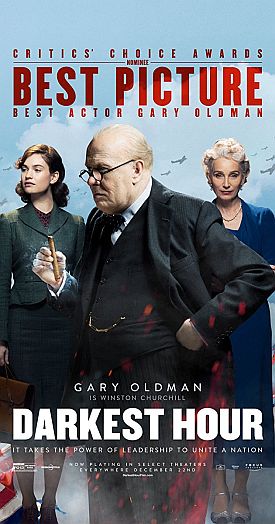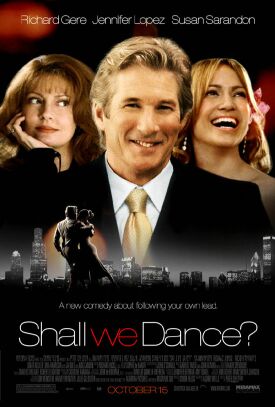Hannibal
The new Hannibal, directed by Ridley Scott (in place of Jonathan Demme) and starring Julianne Moore in the Jodie Foster role of Clarice Starling, FBI agent, has only Anthony Hopkins as the monster left from Silence of the Lambs—a movie which, readers with long memories will know, was not a favorite of mine. The vogue for serial killers, and especially all the nonsense in the earlier film about their “psychology” has always struck me as being rather infantile—an attempt to make our flesh creep with tales of goblins and monsters rather than an invitation to see ourselves in the characters on screen. This lurid and unreal aspect of the genre seemed to me to be particularly in evidence in the story of an apparently superhuman monster with a taste for human flesh. Here was the giant crying “Fee-fie-foe-fum. . .” only in educated accents and preferring fava beans and chianti with his Englishman.
Recognizing that the most responsive chord struck by Silence of the Lambs came with the setting up the quasi-sexual relationship between Clarice and the monster, the new version of the story de-emphasizes Jack-in-the-Beanstalk in order to make the most of Beauty and the Beast. It does so, however, in a somewhat unexpected form—that of the romance novel as invented in the 18th century by Samuel Richardson. The pattern was established by Richardson’s Pamela, in which a virtuous young girl of humble origins fights off the advances of the wicked squire, her employer, until the squire, impressed in spite of himself by her virtue, reforms and marries her. This is more or less exactly the pattern that Thomas Harris sticks to in his novel, on which the movie is based, but the movie changes the ending so as leave Horrible Hannibal on the loose, to come back, no doubt, in a sequel for another go at his Clarice (note that Richardson’s most famous novel was called Clarissa) as the wicked squire.
But the movie still owes much to a Richardsonian or romance-novel sensibility. In its penultimate and climactic scene Hannibal has Clarice—wearing a slinky and revealing black evening gown in which he has dressed her while she was unconscious—pinned to a refrigerator by her cute little pony tail. He leans close to her, like a lover, and whispers: “Tell me, Clarice, would you ever say to me, stop—if you love me, stop?”
“Not in a thousand years!” she replies, for all the world as if she were Pamela being offered riches for the sacrifice of her virtue.
And Lecter’s reply is the best touch of all: “That’s my girl,” he says. Shortly she gives a graphic proof of the truth of her words—that she will do anything rather than submit to his masterful will—and he responds with an even more graphic proof of his love. Clearly, he loves her for her resistance, while she secretly loves him for his persistence, though she would sooner die than admit it to him. Even if Ridley Scott and his screenwriters, David Mamet and Steven Zaillian, have decided to deny for the time being Harris’s instinct to bring the two of them together, we know that that is where they must end up. The tale has now so unmistakably followed the course of the romance novel that it can go nowhere else.
True, in this case our old friend the wicked squire doesn’t just deflower virgins for his amusement, he kills and eats people. Perhaps, allowing for the lapse of two and a half centuries, it’s about the same thing, mutatis mutandis. He also seems to be not the representative of the power structure that excludes the heroine but on the run from it. But this only makes him more of a romantic hero, like those other 18th century popular heroes, the highwaymen or pirates whose tweaking of the powerful gave an extra frisson to their attractiveness. The movie makes it clear, however, that the most important aspect to Hannibal’s attractiveness is how frightfully upper-class he is. Clarice, the daughter of a West Virginian laborer who is discriminated against on account of it by her FBI colleagues, always keeps the fact uppermost in her mind, and is able to assure others in the bureau that a letter with a Las Vegas postmark must be a dodge. Las Vegas, she tells them, is the last place he’d be.
And of course she is right. He is in beautiful, tasteful, upper-class Florence, Italy, where they have no trailer parks and where, under the name of Dr Fell (as in the poem that begins: “I do not like thee, Dr. Fell” ), he is lecturing on Renaissance art and literature. There he is revealed to be learned as well as witty, charming, and urbane, a bon viveur whose way with the hangdog Florentine detective, Inspector Pazzi (Giancarlo Giannini), who is following his trail for the reward is as ruthlessly efficient as it generally is with policemen. For some reason which is not made clear—perhaps only because the Pazzi family is mentioned in Dante—he has a gruesomely medieval fate in store for the inspector, though he does not eat him. With Clarice’s sexually harassing FBI colleague, Paul Krendler (Ray Liotta), he goes back to his old ways and, in a comic climax, feeds him his bits of his own brain.
Krendler, as we might expect, advertises himself as a much worse sort of bad guy than the Florentine. He calls homosexuals queers and speaks of Clarice’s sexual treasure as “cornpone pussy”—something he pretends to have had more than enough of already. The beast! The cad! Sexual and social prejudice rolled into one! What’s eating people compared to that? That’s why the audience cheers when Hannibal neatly removes the top of Krendler’s skull as if it were a boiled egg and feeds his own brain to him. Such punishment is not enough for such a bigot. The part of the brain he is fed, by the way, is one he won’t miss, Hannibal assures us, as it is the bit that controls manners. Of course. Good manners are much more important than morality for such an aristocrat. Good manners are morality.
It’s an interesting point of view, though of course quite wrong, to see the bigotry of sexism-racism-homophobia as a lapse of manners and manners as the only form of behavior that matters. But it is a point of view that would presumably have been a familiar one to the wicked squire with designs on the virtue of an underling or a dependent, and the kind of women who read romance novels are willing to overlook a great deal for the sake of an agreeable manner (or manor!) or for a man who, whatever his other little flaws, is prepared to stand-up for his low-born lass against what Hannibal calls “the Philistines.” Some such idea must have occurred to Julianne Moore herself, to judge from her comment to an interviewer for Vanity Fair when she was asked about the psychic struggle she had with her character’s attraction to a monster: “Tony never eats anybody who’s good.”
She may have been joking, but this is unquestionably a clue to the reaction of what has turned out to be a record-breaking audience, who are as charmed by Hannibal as she is. Why is this? We used to like the wicked squire, in spite of his wickedness, at least partly because he could do (because of his wealth and social position) what we secretly wanted to do ourselves; we like the new wicked squire for the same reason. But where our dreams of license used to extend no further—or little further—than seducing country virgins, now (might I suggest?) we dream of wreaking horrible revenges on those who slight us or make us feel bad, or who don’t live up to our idea of good manners. Hannibal is a movie made for the age of “road rage,” which is why of all those who have come out to see it most will want him to get the girl. He will, eventually, too, and we know already that she will be to him, as she once was to the wicked squire, a redemption.
[Top][Back]
Discover more from James Bowman
Subscribe to get the latest posts to your email.






